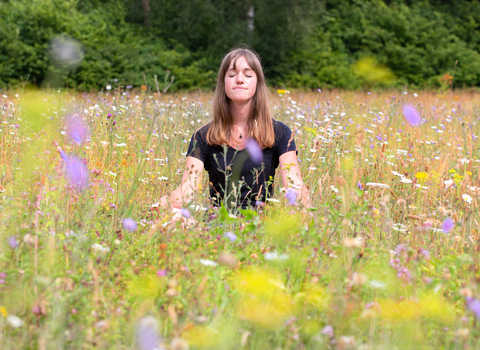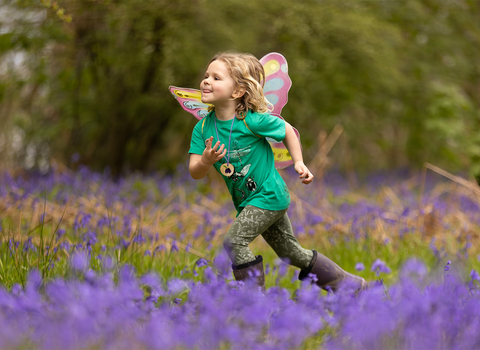Experience the healing power of nature
We spend so much time lost in our thoughts: our worries, ‘to do’ lists and plans for the future. Sometimes it’s difficult to live in the present, to appreciate the now and focus on just being.
Many studies have linked spending time in nature to an increased sense of calm and a reduction in depression, anxiety and stress-related symptoms. Given our recent experience of a global pandemic and now a cost of living crisis, Wildlife’s healing powers have never been so important.
Whatever your circumstances, experience the wonder and beauty of nature and enjoy a new connection and inspiration.
Ten ways to reconnect with nature
1. Listen
You’ll be amazed how many birds you can hear if you take a moment to really listen to nature. Even when you’re inside you can close your eyes and immerse yourself in birdsong, rippling water or the wind breathing movement into trees. Spotify has a wealth of nature sounds to enjoy.
2. Tune in to chill out
Find yourself a quiet place, close your eyes, focus on your breath and relax. Visualise a happy memory when you were surrounded by nature. Notice the sounds, the gentle breeze on your skin, the sensation of the sun, your footsteps on the ground. You can find many online mindfulness tools on YouTube.
3. Be curious
When outside, focus on nature's gifts, such as sticks, leaves, nuts, seeds, flower petals, grasses and feathers. Get curious, pick things up, reach out and touch. You could collect anything not rooted (please don’t pick wildflowers).
4. Capture the moment
Use your camera or phone to capture the exquisite detail of nature, from a pavement weed to an individual leaf.
5. Bring nature indoors
Bring nature into your living room through the eyes of great nature broadcasters on TV. Keep pot plants in your home and hang images of nature on your walls - studies show this can improve health and wellbeing.
6. Natural scents
Smell flowers, the scent of damp leaves or other natural aromas . Grow herbs, or just inhale that scent of new-mown grass.
7. Touch the earth
If you have a garden, stand, sit or lie in it. Go barefoot if you like. Or find a quiet spot outside. Bring your awareness to the parts of your body that are in contact with the ground.
8. Natural exercise
Take a lunchtime walk in your local green space or exercise outdoors - even in winter. Create your own outdoor gym with logs for steps and weights, secure garden benches for jumps, and trees for working out the triceps. Spending at least 120 minutes a week in nature is associated with good health and wellbeing.
9. Relax in nature
Simply sit outside or relax with outdoor yoga - YouTube has thousands of videos you can use at home or in your garden.
10. Grow your own
Grow flowers, fruit and vegetables in your garden. This relaxing pastime is also great exercise and will provide free food for your table.
Natural Ways to Wellbeing (https://www.youtube.com/watch?v=p9I_jExe2I4)
© Wildlife Trusts 2019
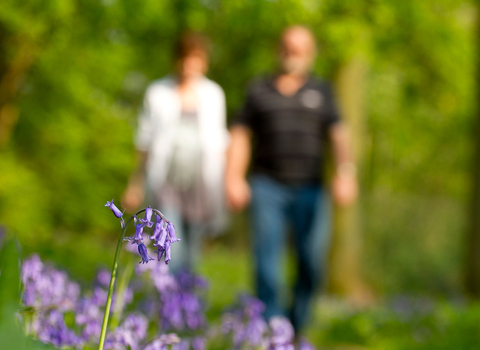
© Ben Hall/2020VISION
Places for people & wildlife
The reserves we care for are places for people and wildlife, places where you can feel the benefits of nature first hand.
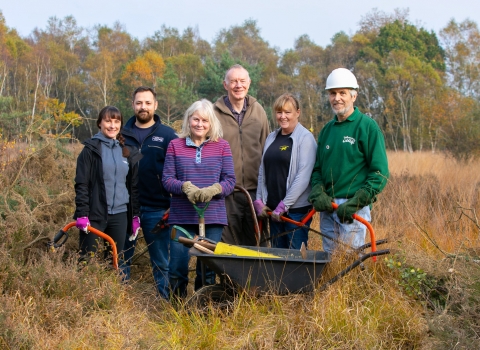
© Jon Hawkins, Surrey Hills Photography
Volunteer outdoors
Volunteering is a great way to help wildlife whilst keeping fit and making new friends.
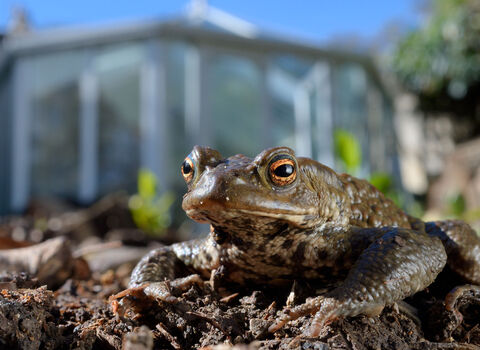
© Nick Upton/2020VISION
Help wildlife at home
Attract wildlife to your garden or outdoor space with our handy guides and enjoy the benefits of nature at home.
Every child wild
Over the last 40 years, children have become increasingly separated from wildlife. It’s a natural disaster in the making!
Like most parents, we believe that a childhood separated from nature is a diminished experience. 28% of UK children are now overweight or obese and fewer than 10% play in natural areas. However, a study of nearly 350,000 medical records showed that living within a kilometre of a green space reduces the risk of 15 major illnesses, particularly anxiety and depression, and even more so for children. There is also evidence that children who grow up with nature are more likely to protect it when they are older.

